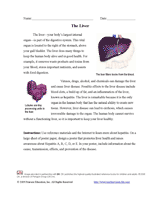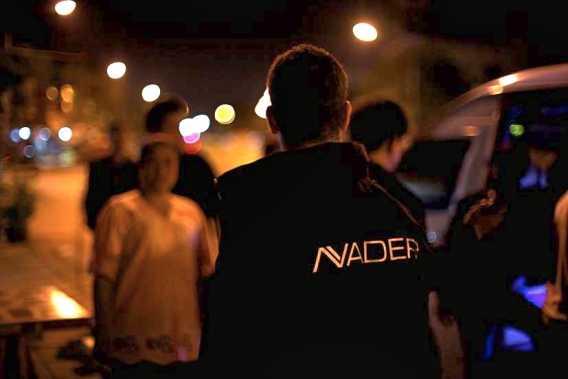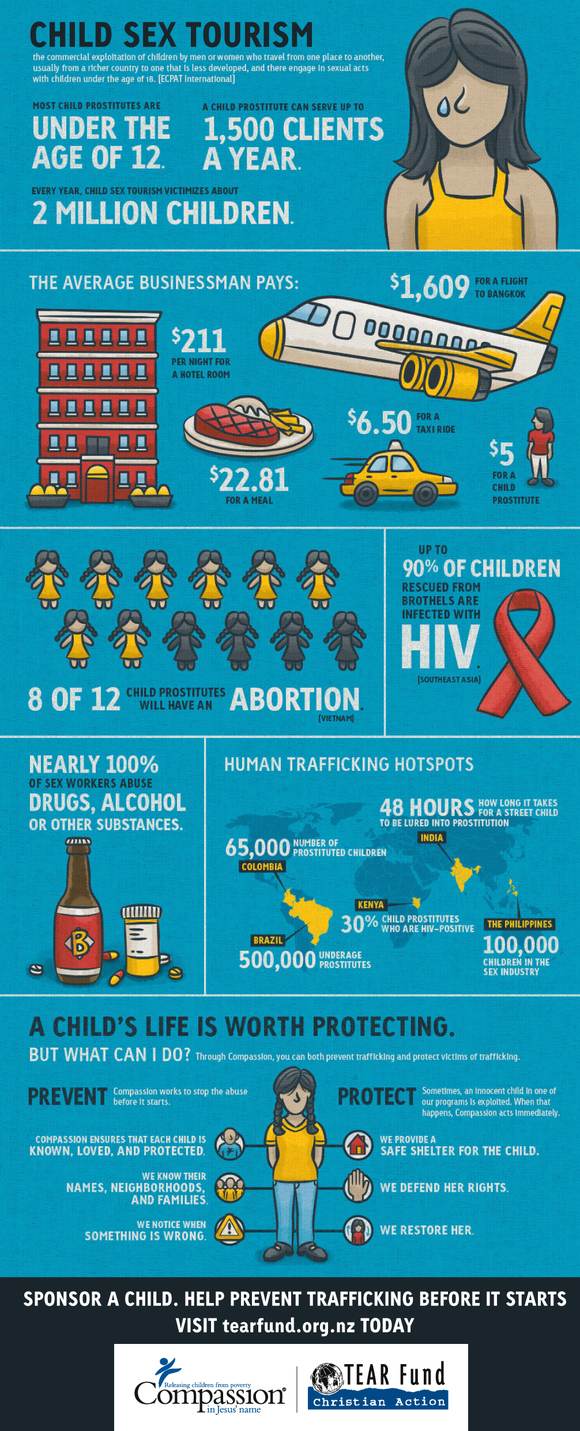13th AUGUST INTERNATIONAL ORGANS DAY
Is Human Trafficking a Global Challenge? - Facts &
Infographic
View as text
Infographic

HUMAN TRAFFICKING: RESPONDING TO EVIL

Recently TEAR Fund ran two events in partnership with Nvader – an organisation freeing those caught in the problem of human trafficking in the sex industry. Nvader focuses on rescue, prosecution of perpetrators and empowerment of victims. The events were fronted by Nvader’s founder, Daniel Walker. The world desperately needs people to know about the magnitude of the human trafficking issue and to confront it, but listening to the stories of what actually goes on can be harrowing. I want to address how we can cope with hearing such things and how we should respond.
Trafficking (forced slavery) in human beings is one of the largest income generators for organised crime just behind drugs and is projected to soon become the top as it is more profitable than drugs. In many countries the penalties for being engaged in human trafficking are less than being involved in drug trafficking. The bottom line is that trafficking human beings is easier and more profitable than trafficking drugs. Human beings, including children, can be an ongoing source of income as opposed to drugs, which are used and are then gone.
It should disturb any human being to hear about children as young as six (and younger) who are trafficked into the sex industry to be used and abused over and over again. In Daniel’s experience as an investigator, gathering information used to bring down brothels offering women and girls forced into slavery and rape, he has encountered that very thing and been offered children for sexual activity. His job, and the work of Nvader now, has been to document all of it and use it as evidence for local authorities to prosecute those involved and to free and empower the victims.
The events TEAR Fund and Nvader put on were designed to inform around the issue of human trafficking and give people a way to act. People were educated about the atrocities, Daniel’s investigative work and the work Nvader undertakes now. This stuff can be hard to hear and often overwhelming if you’re not familiar with it already. I know some people were rightly disturbed and shaken by what they heard – that’s a good thing. The question is, what do you do with that information so it doesn’t eat you alive?
THE PROBLEM OF EVIL
First we must understand that evil is real and things like human trafficking in the sex industry are the frontline of evil. It’s the coalface of human beings using, exploiting and abusing power against the vulnerable. It’s true of everyone involved in the chain from the traffickers to the ‘consumers’ – and the consumer isn’t just the person using these vulnerable women, girls and boys in the brothels, it’s also those accessing porn on their computers and watching videos created by those using trafficked slaves.
With that in mind we need to shift our understanding from this being a distant issue, to understanding that we live in a global community. There are plenty of people in our own communities helping to feed the issue.
Evil exists on a spectrum. That spectrum goes right from the smallest acts of abuse we all perpetrate against others and the environment regularly, right through to these crimes where the evil committed is considered hideous to most people. In thinking about our response, being aware of that spectrum is helpful because then the response becomes about the whole of our lives rather than simply trying to work out how we respond to this overwhelming issue.
With that sense of a spectrum of evil in mind, having an understanding of human nature is significant – a framework from which we have an awareness of where we think both good and bad actions stem from. For some this will predominantly be a theological framework, for others it will be biological and/or contextual, and for many it will be a mix of the three (I fit in that last camp). Having this gives us an answer to the ‘why’ question for the evil we see – though trying to understand individual cases of evil can sometimes be pointless because there simply doesn’t seem to be a rational explanation. No explanation will be free of emotion – we should feel emotion when confronted by evil, it’s what will compel us to respond.
Once we have an awareness of the spectrum of evil and our framework for understanding the human nature that drives both the good and the bad, we then have the question of response.
WE CAN DO SOMETHING
I want to drive home an important point here. If you don’t get this and you commit your life to responding to the world’s needs (whatever they are), you will eventually cripple yourself emotionally, mentally and spiritually, if not physically as well.
Allow me to say this very clearly – you and I, we’re not the saviours of the world. We can’t solve all the world’s problems. The world will continue to turn with both its best and worst taking place whether we’re here or not.
Got it? Ok, now allow me to also say ‘but we can do something’. In order to truly be effective you need to free yourself from the idea that you have to fix it all. God has put in place a collective of people who should be thinking like this – it’s called the Church. At the head of the Church IS the Saviour, Jesus. Those of us who follow him are conduits for his love, but it’s he that saves the world and is working towards its complete redemption, reconciliation and renewal.
With the sense that we want to do something, the question then becomes ‘what?’ The answer to that involves another spectrum. Just as there is a spectrum of evil, there is also a spectrum of love. I use the word love because it is more potent than the word ‘good’ and since I believe that evil is a motivation and an action, thinking the same about love makes it the opposite of evil and the most effective response. To be motivated by love and to act in love is selfless – it seeks the good of the other.
Our real challenge is not to pick some arbitrary issue and then to do good in relation to that issue, it is to have our whole lives shaped by love so that the spectrum of our lives is a spectrum of enacted love. Our aim is to be transformed into people whose lives are lived through the filter of love – with it being our driving motivation at the source of our being from which all of our actions flow. Our lives and actions are then lives and actions of love and therefore, justice.
Love then becomes the lens through which we filter everything. Love (the desire to do whatever is best for the other) should drive how we interact with our families, our neighbours, our schools, workplaces, communities, our nation and the world. We can do nothing more and nothing less.
With this at the heart of who we are, we then have the opportunity to greet every issue with a question of love. We can and should allow our hearts to be broken by evil, but it should never end there for us. The question we should always be asking when faced with the spectrum of evil is ‘what is the most loving response I can bring to this?’ Note, the question isn’t ‘what needs to be done to completely eradicate this issue and how am I going to do it?’ Instead it’s a question that recognises our limitations but asks, ‘what can I do?’ You can do nothing more and nothing less. And sometimes our answer might very honestly be ‘nothing at this time’. And that’s ok too if the whole of our lives are being driven by love and that spectrum of love is being outworked through us in many ways.
When faced with an issue that we do feel compelled to respond to, in this day and age there are three main ways to respond.
1. Action (what can I do?)
2. Prayer (what can I pray for?)
3. Giving (How can I financially help?)
2. Prayer (what can I pray for?)
3. Giving (How can I financially help?)
Educating ourselves on an issue can deepen all three responses. You might choose to respond with one, two or three of these. The issue of human trafficking involves clear ways to enact all three and TEAR Fund has ways you can do these. With the second two we can give you effective ways to be involved and the first we are developing.
So let’s be clear, there are ways to understand the evil you hear about. Know that you don’t have to completely solve the problem – free yourself from that expectation, but also know that you can do something and the something you can do is to shape your life through love and act out of that. Whatever you then do in life is a valid response to the problems of the world from the small to the large.
With all that, face every problem and ask the questions ‘is this something I can be involved in and if so, how?’ Nvaderoffers a way to be involved in the issue of human trafficking. When it comes to that and some of the world’s worst and most present problems, TEAR Fund is here to help you with the ‘how’.
Check out this infographic to get a handle on the issue of child sex tourism in the human trafficking industry and see one way you can respond…
The LiverThe liver—your body’s largest internalorgan—is part of the digestive system. This vitalorgan is located to the right of the stomach, above your gall bladder. The liver does many things tokeep the human body alive and in good health. Forexample, it removes waste products and toxins fromyour blood, stores important nutrients, and assistswith food digestion. 
The liver filters toxins from the blood.Viruses, drugs, alcohol, and chemicals can damage the liverand cause liver disease. Possible effects of liver disease includeblood clots, a buildup of fat, and an inflammation of the liver,known as hepatitis. The liver is remarkable because it is the onlyorgan in the human body that has the natural ability to create newtissue. However, liver disease can lead to cirrhosis, which causesirreversible damage to the organ. The human body cannot survivewithout a functioning liver, so it is important to keep your liver healthy.Lobules are tiny processing units inthe liver.Instructions: Use reference materials and the Internet to learn more about hepatitis. On alarge sheet of poster paper, design a poster that promotes liver health and raisesawareness about Hepatitis A, B, C, D, or E. In your poster, include information about thecause, transmission, effects, and prevention of the disease.© 2009 Pearson Education, Inc. All Rights Reserved http://www.teachervision.fen.comImage provided in partnership with DK. DK publishes the highest-quality illustrated reference books for children and adults. © 2008DK, a division

The liver filters toxins from the blood.Viruses, drugs, alcohol, and chemicals can damage the liverand cause liver disease. Possible effects of liver disease includeblood clots, a buildup of fat, and an inflammation of the liver,known as hepatitis. The liver is remarkable because it is the onlyorgan in the human body that has the natural ability to create newtissue. However, liver disease can lead to cirrhosis, which causesirreversible damage to the organ. The human body cannot survivewithout a functioning liver, so it is important to keep your liver healthy.Lobules are tiny processing units inthe liver.Instructions: Use reference materials and the Internet to learn more about hepatitis. On alarge sheet of poster paper, design a poster that promotes liver health and raisesawareness about Hepatitis A, B, C, D, or E. In your poster, include information about thecause, transmission, effects, and prevention of the disease.© 2009 Pearson Education, Inc. All Rights Reserved http://www.teachervision.fen.comImage provided in partnership with DK. DK publishes the highest-quality illustrated reference books for children and adults. © 2008DK, a division
About Organ Donation Day
Organ Donation Day in India is celebrated on 13th of August every year by the people, government organizations and other related professions in order to motivate normal human beings to donate the organs as well as to understand the value of organ donation in the life of an individual. The organ donor can be anyone of which the organ can be transplanted to the patient urgently require. The organ donated by the normal human being is saved properly to transplant into the patient whenever he or she require. One can get the new life through the organ transplantation donated by someone.
Organ Donation Day 2015
Organ Donation Day 2015 would be celebrated all over the India at Thursday, on 13th of August.
Importance of Organ Donation
According to the report, at least more than 5 lakhs of the Indians are dying every year just because of the failure of their major functioning organs anytime. They still want to live their life as they are not fully satisfy with their life and want to live more but just because of the natural calamities they are unable to do so. The organ transplantation could play a major role in their beautiful life by increasing their period of living a life more than expectations. The donor of the organs plays a role of God in the life of organ transplanted person. One organ donor can save more than 8 lives in his life by donating his well function organs. The Organ Donation Day campaign, which is celebrated every year at August 13th, provides a great opportunity in everyone’s life to come ahead and pledge to donate their precious organs.
It’s the honor of medical researchers who had experimented for years with many failures for getting the successful results over the organ donation as well as organ transplantation in the life human beings. Finally they got the successful result over the crucial process of organ transplanting. The organs which can be successfully transmitted are kidneys, livers, Bone marrow, hearts, lungs, cornea, pancreases, small bowels through the medical treatments. The organs transplantation and donation both of the process can be successfully done because of the development of immuno-suppressive drugs which can increase the survival rate of organ recipients.
Because of the growth and development of the new technologies and therapies in the modern life, the need of the organ transplants is continuously increasing with the great extents which need more organ donation every year. Instead of availability of the great technologies and therapies the death rate has increased because of the shortage of transplant-able organs.
Objectives
- To aware the people about the need of organ donation.
- To distribute the messages of organ donation all over the country.
- To remove the hesitations of the people about donating organs.
- To say a grateful thanks to the donors of the organs.
- To motivate and encourage more people towards organ donation in their life.
Which organs can be donated?
- Kidney
- Lungs
- Heart
- Eye
- Liver
- Pancreas
- Cornea
- Small Intestine
- Skin tissues
- Bone tissues
- Heart valves
- Veins
There are many initiators of the organ donations in the society; one of them is The Times Of India who is distributing the message of organ donation all over the world through the effective and real news on the daily basis including statistics about the organ donation need and its fulfillment. The news of the TOI brings a hope among the people who really needs the organ transplantation. It has given the great message under the title of “Life Can Begin After Death”. According to it, A big number of patients who have organ failure and need the organ of some other person to continue their life all over the India. The need of the organ transplantation can only be fulfilled by the process of organ donation after the brain death. But still the rate of organ donors in our country is very less just because of the myths and confusions in donating organs. Be the real hero of your family and your great country in your life by donating your precious organs to someone who need it very seriously.
Statistics according to Times of India
The most of the organ donation in the country is performed annually between the relatives means the person donate the organs only to his relatives. Around 4000 kidney and 500 liver live donations are being carried out by relatives to their patients only annually in the various hospitals. They donate one kidney and ¾th of their liver (as it can regenerate to the normal size after six weeks). Around 20 heart and lungs are transplanted annually at the center in Chennai whereas the demand is high. 2 lakhs cornea transplantation is required per year whereas only 50000 are being donated. There is a little action by the Indian people instead of the high awareness about the topic because of their misunderstandings and lack of clarity.
How and where to donate organs
Top NGO’s of the country are involved in organ donation:
- Mohan Foundation
- Gift Your Organ Foundation
- Shatayu
- Gift A Life
Online organ registry
There is a facility of online organ registry for the people all over India who are willing to donate organs on their own will. Organ registry ensures the proper organ donation as well as the fair use of donated organs in the future according to the priority of need and requirements of the organs to the recipients. Indian Society of Organ Transplantation was initiated the Transplant Registry in India in 2005, Cadaver Transplant Programme was initiated by the Government of Tamil Nadu in 2009 and then by the Department of Health, Government of Kerala in 2012 and Department of Medical, Health and Family Welfare, Government of Rajasthan in 2014. There is another plan for the national organ registry by the Government of India.
Organ donor card
Organ donor card provides access to donate organs after death. This facility is provided by the MOHAN Foundation to spread awareness all over the country and get organ pledges. In the last few years, the foundation has distributed million of such cards in English and other regional Indian languages. An organ donation drive of March 2012 (DAAN, partnered with HCL Technologies, Chennai Police, Apollo Group of Hospitals, Indian Medical Association, Cadaver Transplant Programme) had received more than 12,900 pledges from doctors, policemen, and corporate employees. However, this campaign run by the Times of India in 2013 (partnered with NGO’s like Shatayu, Gift a Life, Gift Your organ, and MOHAN Foundation) had received more than 50,000 pledges for organs.
Fear and Myths about Organ Donation
There are various fear and myths exists in the people’s mind about the organ donation because of the low level awareness. Most of the people do not have proper awareness about the organ donation, which organs can be donated, when they can donate, how to get registered for the organ donation, etc. Some people do not interested in the organ donation or do not show their independent desire for organ donation because of the family pressure or their own fear and myths.
There is a referral contest for organ donation run by the Times of India
You need to sign up as an organ donor on facebook.com/TOIMYTIMES through your facebook app. And then invite friends and family too for sign up. Top 50 donors (involved in encouraging more referrals) will get Rs. 10000 by the Times Foundation.
You can also sign up as an organ donor on www.organdonationday.in



No comments:
Post a Comment